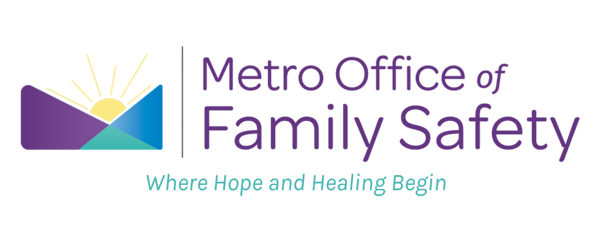Domestic Violence
If you or someone you know is experiencing domestic violence or you’re unsure about whether or not your situation is domestic violence, please speak to an advocate at the Family Safety Center today at 615-880-1100. To speak with someone on a 24 hour hotline, you can contact the YWCA Domestic Violence Hotline at 1-800-334-4628.
Domestic violence is any pattern of behavior used to maintain power and control over an intimate partner or family member. Domestic violence can include using fear, manipulation, isolation, financial abuse, physical abuse, sexual abuse, and/or verbal or emotional abuse.
On this page:
Power & Control Wheel The Cycle of Violence Signs Someone is Dangerous How to Get Help
The Power and Control Wheel & Cycle of Violence
The Power and Control Wheel is a tool you can use to help you identify red flags in a relationship. If a partner is behaving in ways that are on the wheel, this could be a sign that you could be in an unhealthy or even dangerous relationship. Here are the forms of abuse explained on the Power & Control Wheel:
- intimidation
- emotional abuse
- isolation
- minimizing, denying, and blaming
- using children
- male privilege
- economic abuse
- coercion and threats
The Cycle of Violence is common in a violent or dangerous relationship and can occur in phases:
- Tension-building phase: usually the cycle begins with the tension building between the abuser and the victim. This can include an abuser’s mood swings, irritability, or being cold and distant from the victim.
- Explosion phase: the tension can then reach an act of violence or the explosion. This incident doesn’t necessarily mean that physical violence occurs but can also mean threats and broken promises.
- Seduction phase or Honeymoon phase: the abuser and victim make peace and reconcile after a violent incident or explosion. The abuser will usually apologize and promise never to let it happen again. Several days, weeks, or even months of peace and relative happiness can follow.
Eventually, however, the tension will begin to build again and the cycle will start over. The cycle can begin to get shorter and shorter and the violence can become more frequent or more violent. Sometimes the honeymoon phase can disappear altogether.
Signs Someone Might be Dangerous
- They want to get involved fast. Right away your partner wants you to promise to only be with them. The person makes extreme statements like, “No one’s ever loved me like you do.”
- They are very jealous. They want to make sure you aren’t with anyone else. They call all the time or show up without telling you they are coming.
- They want to control you. They want to know who you talked to and where you were. They check the mileage on your car, keeps all the money, or makes you ask for their permission to go anywhere or do anything.
- They expect you to be perfect. They expect you to know what they want and to meet their every need.
- They cut you off from others. They don’t want you to see family and friends. They won’t let you have a phone or car or controls how often you get to use them. They don’t want you to work or keep you from working.
- They blame others for their problems. If anything goes wrong, it’s always someone else’s fault like their boss or you. Everyone is out to get them.
- They blame others for their feelings. They say things like, “You hurt me by not doing what I tell you,” or “You make me mad,” instead of “I’m mad.”
- They get upset easily. They get mad about things that are just a part of life.
- They hurt animals and children. They kill or punish animals. They want children to do things they can’t or they tease them until they cry.
- They use force during sex. They enjoy throwing you down or holding you down against your will during sex. They say they find the idea of rape exciting.
- They say things to hurt you. They always criticize you or say cruel things. They put you down, curse you, and call you ugly names.
- They think women should obey men or that men should obey women. They want you to serve, obey, and stay at home.
- They have sudden mood swings. They switch from sweet and loving to angry in a few minutes.
- They have hit partners before.
- They say that they will hurt you or they threaten to kill you. They say things like, “I’ll break your neck,” then, “I didn’t really mean it.”
If you think that you are in an abusive relationship, look at our safety planning page for ways to increase your safety, learn more about the services our Safety Centers provide, and see our Other Help in Nashville page for community support.
If you or someone you know is experiencing domestic violence or you’re unsure about whether or not your situation is domestic violence, please speak to an advocate at the Family Safety Center today at 615-880-1100. To speak with someone on a 24 hour hotline, you can contact the YWCA Domestic Violence Hotline at 1-800-334-4628.


